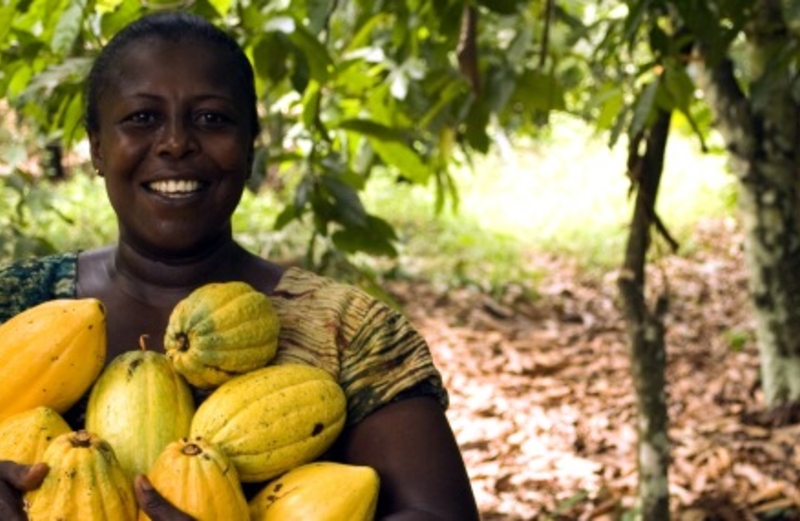NEPAD endorses an initiative to empower women to enhance agricultural development in Africa

Addis Ababa July 14, 2012 - “With the increase in democratic intensity, there’s now been an opening of public policy designs which have brought on key priorities like agriculture and infrastructure in Africa.” The remarks were made by the Chief Executive Officer of the New partnership for African Development - NEPAD Dr Ibrahim Mayaki, at media briefing prior to the launch of Empower Women in Agriculture (EWA) Initiative in Addis Ababa, today.
Dr Mayaki was on a panel with Dr Frannie Leautier, Executive Director of the Africa Capacity Building Foundation – (ACBD) and Dr Lethoya Awori of GIMCA - the Gender is My Agenda Campaign network
EWA is championed by African Heads of States with a renowned record of service for promoting women's empowerment and agriculture and by key private sector patrons from the Continent. Liberian President Ellen- Johnson Sirleaf and President Paul Kagame of Rwanda are already champions of the initiative as co-Chairs, and preparations are on-going to get more African leaders on board.
The NEPAD CEO stated that the reverse of a top-down process has enabled a bottom up process, which now highlights a redefinition of new priorities in developmental policies. He said Africa cannot transform agriculture without involving women.
Dr Awori said EWA had found a champion in President Ellen-Johnson Sirleaf, who gave impedance to three fundamentals challenges that women face, “The crisis affecting women in Africa centres around three F’s - Fuel, Food and Finance, and Dr Sirleaf suggested that a panel of heads of state champion the empowerment of women in agriculture, to tackle this crisis.” said Dr Awori.
NEPAD’s contribution to EWA will be through its African framework for developing agriculture – the Comprehensive Africa Agriculture Development Programme – CAADP. Several African heads of states have made comprehensive commitments to CAADP and through it, EWA, to be officially launched later this weekend, will draw support for measures that will benefit women in agriculture directly or indirectly.
Dr Leautier said the partnership with NEPAD will be a very important one because of the specific attention and opportunities women will be exposed to. “When an African Woman grows food, she grows what her pot will look like – not mono-cropping, but integrated farming, she said.
